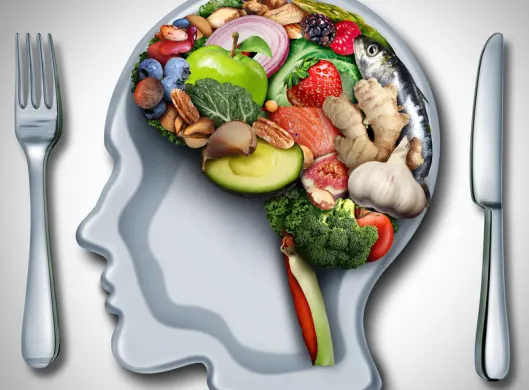From a young age, we’re taught that eating well helps us look and feel our physical best. What we’re not always told is that good nutrition significantly affects our mental health, too. A healthy, well-balanced diet can help us think clearly and feel more alert. It can also improve concentration and attention span.
Conversely, an inadequate diet can lead to fatigue, impaired decision-making, and can slow down reaction time. In fact, a poor diet can actually aggravate, and may even lead to, stress and depression.
One of the biggest health impairments is society’s reliance on processed foods. These foods are high in flours and sugar and train the brain to crave more of them, rather than nutrient-rich foods such as fruits and vegetables. A lot of the processed foods we eat are highly addictive and stimulate the dopamine centers in our brain, which are associated with pleasure and reward. In order to stop craving unhealthy foods, you’ve got to stop eating those foods. You actually start to change the physiology in the brain when you pull added sugars and refined carbohydrates from your diet.
Sugar and processed foods can lead to inflammation throughout the body and brain, which may contribute to mood disorders, including anxiety and depression. When we’re feeling stressed or depressed, it’s often processed foods we reach for in search of a quick pick-me-up. During busy or difficult periods, a cup of coffee stands in for a complete breakfast and fresh fruits and vegetables are replaced with high-fat, high-calorie fast food. When feeling down, a pint of ice cream becomes dinner (or you skip dinner altogether). According to the American Dietetic Association, people tend to either eat too much or too little when depressed or under stress. Eat too much and you find yourself dealing with sluggishness and weight gain. Eat too little and the resulting exhaustion makes this a hard habit to break. In either case, poor diet during periods of stress and depression only makes matters worse. This cycle is a vicious one, but it can be overcome.
To boost your mental health, focus on eating plenty of fruits and vegetables along with foods rich in omega-3 fatty acids, such as salmon. Dark green leafy vegetables in particular are brain protective. Nuts, seeds and legumes, such as beans and lentils, are also excellent brain foods.










